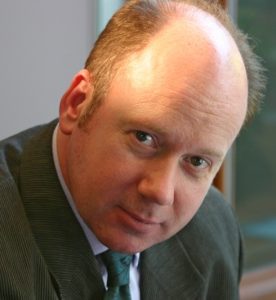11 plus – Guest Blog by Gary Sutton

Gary Sutton, media analyst, screen-writer and journalist, writes about a defining moment in his education.
My Catholic primary school had a deserved reputation for success at the 11+ examination. What we did – and what other schools in the area failed to do – was hold mock 11+ exams in the weeks approaching the real thing, so on the day of the proper test, we were seasoned, and unsurprised. Passing the 11+ secured a place at the local grammar school and a path to a successful middle-class future. Failure led to the local secondary modern, skewing one’s opportunities towards a blue-collar job.
I was particularly adept at the kind of thinking required by IQ tests like the 11+. There was little doubt that I would pass. My best friend Pascal was a prodigiously gifted artist and seemed no less intelligent than me. But the nature of the 11+ meant that his chances of passing it were slim.
At 10, although we were aware that the exam was important, in truth we had little concept of the long-term implications of passing or failing, so going to the local Catholic secondary school – St. Paul’s – didn’t seem too bad. There were already strong links to our school via the neighbouring Catholic church (also called St Paul’s) and the Cub Scout troop. By contrast, the grammar school was unknown. Even its position, high above our town, was daunting and distant. In the months before the exam, when our headmistress or deputy head asked us where we would go if we passed, I said, “St. Paul’s” and meant it.
Pupils making that choice were clearly prized: when a St. Paul’s student won a university place it was celebrated in the parish magazine. It didn’t occur to me that because such an event was newsworthy, it was rare.
As we proceeded with our mock exams, the overall performance of our class increased. At one point, I achieved 100%, enabling me to sit out the post-exam analysis. Pascal’s scores improved, but it was becoming clear who of our class would struggle with the real thing.
Over Christmas, in conversation with my aunt we learned that my bright cousin had faced the same choice as I was facing. She had plumped for the grammar school. I decided to change my mind. Announcing my decision would not be easy, but my parents were in full support.
A few weeks later the deputy head asked the familiar question. I kept my hand down. She failed to conceal her surprise.
“I see,” she said. “Who plans not to go to St. Paul’s if they pass their 11+?”
Red-faced, I raised my hand. The other certainties did not. Pretty Jeanette Ife and joker Tim Awcock raised theirs. Jeanette was already down for a private school in Brighton. As someone who wore his dimness with pride, Tim had already accepted his fate. I was grateful for the comic relief.
Looking directly at me, the deputy head said, “I see,” again before leaving the classroom.
Our classes proceeded as usual until break. I headed outside with Pascal.
I noticed people looking at me differently, pityingly, enviously. Jeanette strode over from a group of girls. To my eyes, everything about her was perfect: beautiful features, hair, skin. She was bright, sporty and – as much as an 11 year-old girl can be – elegant. Despite being a non-Catholic, she was also Head Girl.
“Good for you,” she said. “It would be a waste for you to go to St. Paul’s.” She said it quietly, so that no-one else could hear. “So where are you going? Presuming you pass?”
“The Grammar School, I suppose.” It hadn’t entered my head that there were any other possibilities. Clearly Jeanette – or more likely her parents – was ahead of me.
The bell rang. Jeanette dashed back to class. I felt different, better, vindicated. But also apprehensive. I’d taken a step into the unknown.
Maybe my changed mood was apparent. Maybe I seemed defiant. I had undoubtedly upset expectations. From then on, school life was hellish. I went from getting virtually every question right to the opposite. Instead of using my Christian name, the deputy head switched to using my surname. My written work was regularly marked down, with more petty comments and corrections than had previously been the case. I told my parents, downplaying what was going on, so they took no action.
Having absorbed the Catholic church’s endless stories of martyrdom, of saints brutally punished for their faith, and with the obvious example of Christ’s Passion, I put up with this persecution. Despite the same question being raised repeatedly, I stuck to my decision.
The exam took place in early spring. As expected, I passed. As expected, Pascal did not. Although there was no real purpose to it, for the rest of the school year, we continued attending, going through the motions. And then it was over – primary school, even childhood. And my friendship with Pascal. Separated by one exam, I never saw him again.
Born in London and educated at the LSE and UCLA’s School of Theater, Film and Television, Gary Sutton has worked in corporate communications in the IT industry for over 20 years. Prior to that he was a journalist, specialising in film finance, and a media analyst, focusing on the UK and European film industries. In his current role he regularly writes and produces corporate videos, podcasts and marketing collateral. As a screenwriter he has had several screenplays optioned and developed. He is currently working on a new screenplay and a collection of short stories, looking at his time in Hollywood in the 90s.

